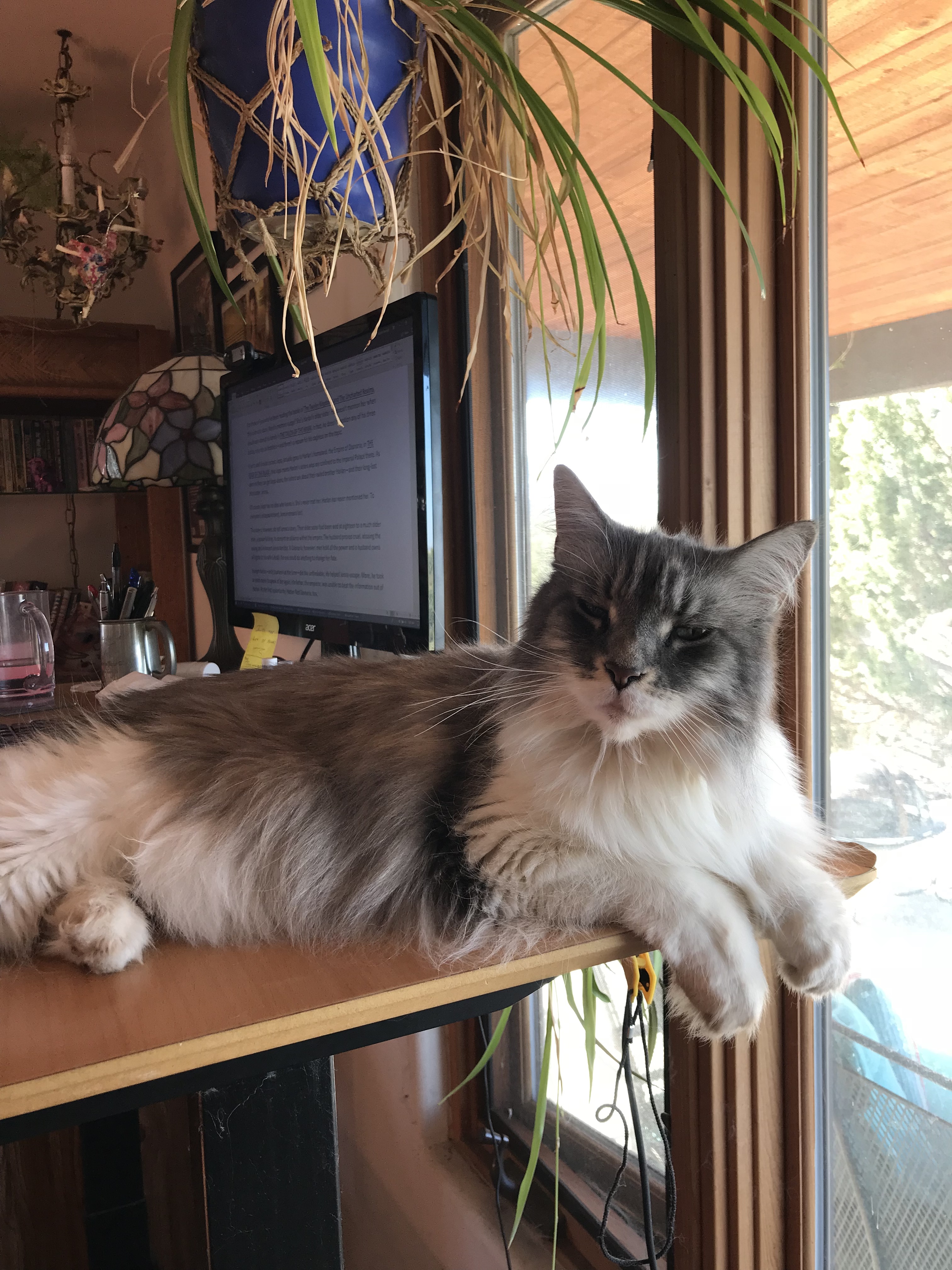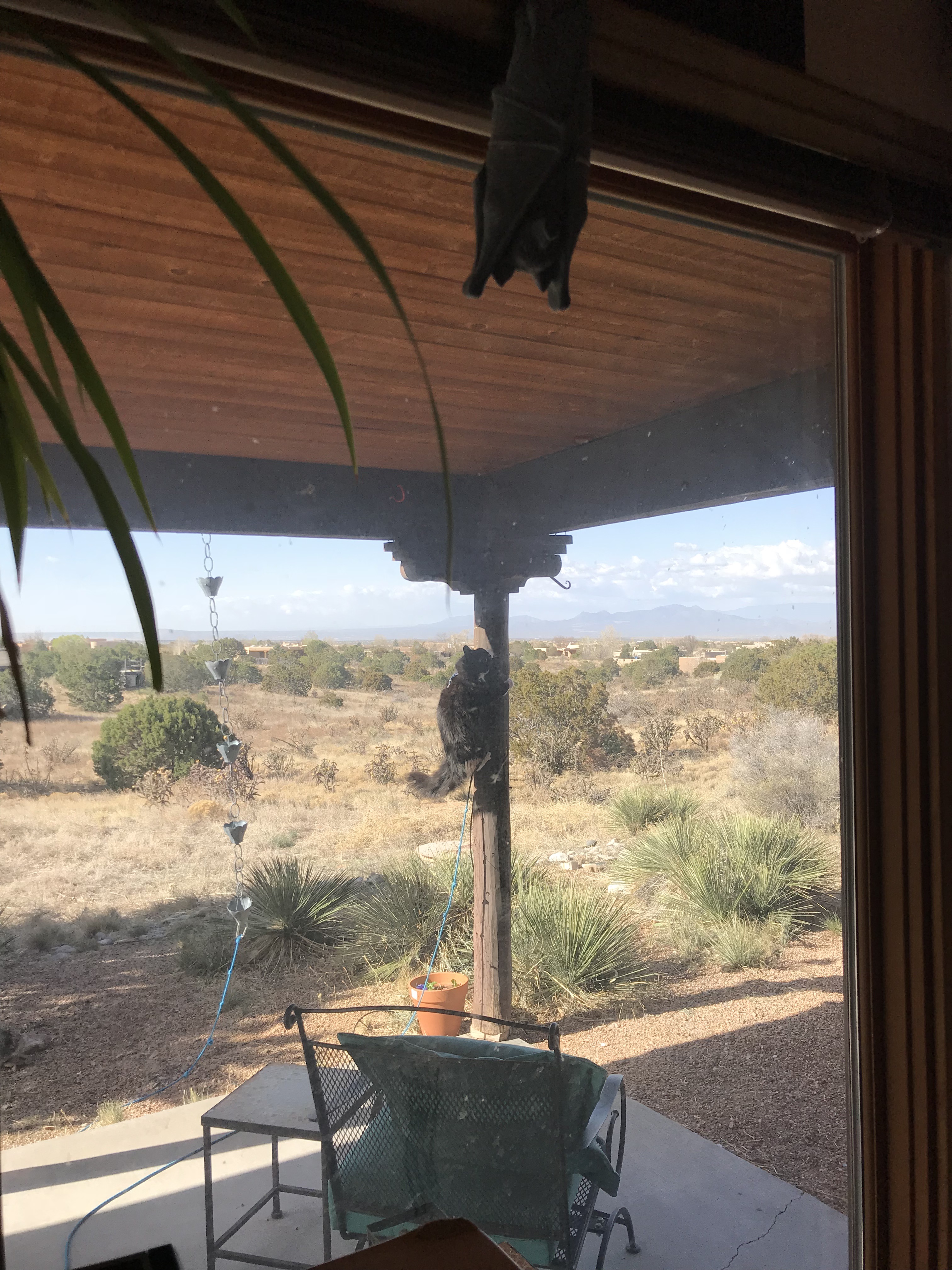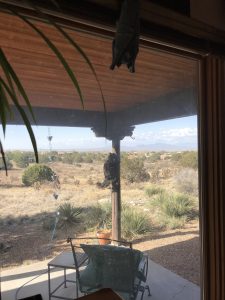
Isabel as gatekeeper. You shall not pass.
I hear the titular advice a lot: “If you’re bored, your readers will be too.” It’s that kind of advice you see on inspirational posters. It’s simple enough to fit in a small space. It sounds good at the outset. And, like, many of those, it’s not very helpful.
In this case, I think it’s actually the kind of bad advice that can cause real problems because it’s absolutely not true.
See, writing is a painstaking process. Especially writing a longer work like a novel. Even for people lucky enough to write fast, or on those fantastic days when the words pour out, there’s days when the writing isn’t like that. And there’s revision, which can be torturous. If you write a lot, then you perforce spend a lot of time writing. It’s absolutely unreasonable to expect to be thrilled and fascinated every moment of the process.
Certainly not at the level you hope the readers will be.
This is the key, so I’m going to all cap it. Because, what else is the Caps Lock key for?
READING AND WRITING ARE DIFFERENT EXPERIENCES.
Do I need to say it again for the people in the back? I’m guessing no, because we all recognize that this is true. There are few more contradictory feelings for an author than releasing a book we spent the last six months or a year writing and at various levels of editing, only to have readers message within hours that they LOVED it and when is the next one coming out? On the one hand, it’s fabulous and exhilarating that people are so excited for the story that they read it immediately. There’s really no greater compliment. (So, Readers – don’t stop! That’s not what I’m saying.) On the other hand, however, it’s daunting that readers can devour so quickly what takes so long to produce.
Which is why this whole “if you’re bored, the reader will be, too” thing is a false equivalence.
What it takes me a day of work to write might feel like a slog. Let’s say I write 3,000 words/day, which is my usual goal. At my typical average of 271 words/page (this is remarkably steady across all my work), that’s about 11 pages. (That’s in Word, Times New Roman 12pt, double spaced, 1″ margins all around.) How fast do you read 11 pages? At the average reading speed of 200 words/minute, that takes 15 minutes to read what I spent hours drafting. And that’s not counting any of the editing that comes after.
OF COURSE my experience is slower and less exciting!
Neil Gaiman says that writing a novel is a lot like paving a road with bricks. (I think this was on his Tumblr – I haven’t been able to find it again. If anyone knows, please link me to it! Edited to add, I asked him on Twitter and he suggested this post, which isn’t exactly how I recalled it, but is full of awesome.) He says it can be like laying down one brick after another, slowly making progress. Laying bricks is, by nature, tedious. Painstaking, even.
You don’t go into brick-laying for the thrills; you do it because you want a paved road.
Same with writing.
If you’re bored, that’s okay. Keep going. Seek the next brick, layer on the mortar, carefully set it in place. Keep going.
If you do your job right, the reader will cruise along on a smooth road, never guessing what it took to put it there.
Exactly as it should be.
 These three books are on sale right now. THE MARK OF THE TALA, the book that started it all, first in The Twelve Kingdoms series. Also THE PAGES OF THE MIND, my RITA® Award-winning novel, which kicks off a new phase in the overall series, and PRISONER OF THE CROWN, first in a stand-alone spin off trilogy, The Chronicles of Dasnaria. If you’ve been thinking about reading my books or this series, it’s a great time to start!
These three books are on sale right now. THE MARK OF THE TALA, the book that started it all, first in The Twelve Kingdoms series. Also THE PAGES OF THE MIND, my RITA® Award-winning novel, which kicks off a new phase in the overall series, and PRISONER OF THE CROWN, first in a stand-alone spin off trilogy, The Chronicles of Dasnaria. If you’ve been thinking about reading my books or this series, it’s a great time to start!



 Our topic this week at the SFF Seven is “finding motivation when life spirals downward,” (as the title implies!).
Our topic this week at the SFF Seven is “finding motivation when life spirals downward,” (as the title implies!). 


